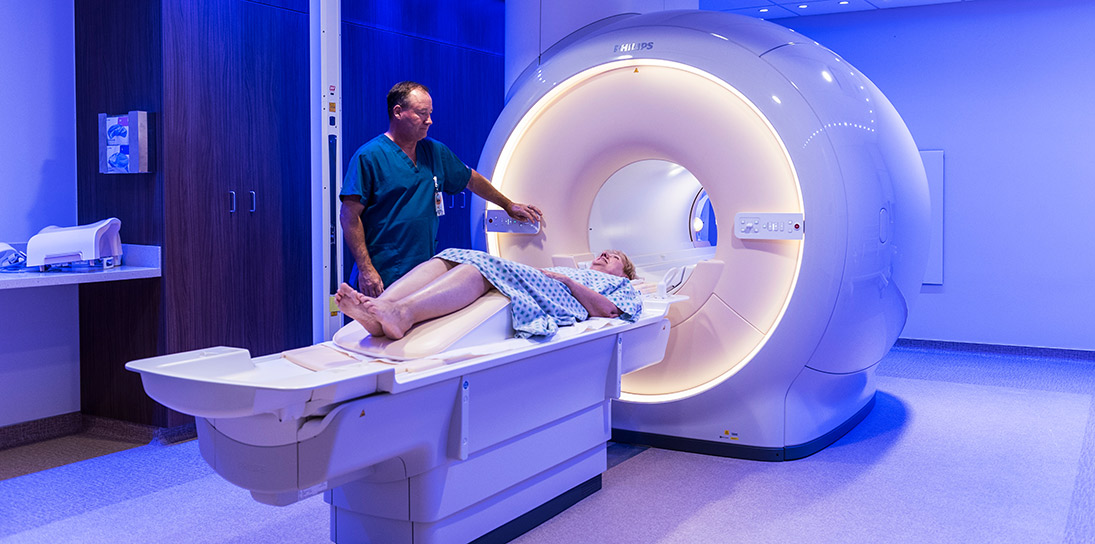
Neurosciences
Neurosciences
Neuroimmunology focuses on the diagnosis and treatment of neurological disorders and infections caused by interactions between the nervous system (essentially, your body's command center) and the immune system (which helps the body fight off infections and disease).
Our team of highly skilled specialists is able to diagnose and treat a number of conditions that fall into this field.
Demyelinating Diseases
A demyelinating (dee-my-uh-luh-nay-ting) disease is a condition that causes damage to the protective covering that surrounds nerve fibers in your brain, the nerves leading to the eyes (optic nerves) and your spinal cord.
Nerves send electrical signals that help you feel sensations such as touch, taste, see and feel. They also help with movement. When nerve fibers are damaged, these signals slow down or even stop, causing neurological problems.
Multiple sclerosis
Multiple sclerosis, or MS, is the most common demyelinating disease. Signs and symptoms can vary, but may include movement or vision problems, tingling or body pain, and bowel and bladder dysfunction.
Acute Disseminated Encephalomyelitis (ADEM)
Acute disseminated encephalomyelitis, or ADEM, is a rare neurological condition that typically follows a viral infection. Signs and symptoms may include trouble swallowing, weakness in the arms and legs, confusion, drowsiness or even coma.
Other Conditions
We also treat other conditions that fall under the umbrella of neuroimmunology that are not considered demyelinating diseases.
Meningitis
Meningitis is an inflammation of the fluid and membranes surrounding your brain and spinal cord. The swelling from meningitis typically causes headache, fever and a stiff neck.
Most cases of meningitis in the U.S. are caused by a viral infection, but bacterial, parasitic and fungal infections are other causes.
Neuromyelitis optica (NMO)
Neuromyelitis optica, or NMO, is a disorder that mainly affects the eye nerves and spinal cord. It sometimes occurs after an infection, and can often be misdiagnosed as multiple sclerosis.
Neuromyelitis optica can cause blindness, weakness or paralysis in the legs or arms, painful spasms, loss of sensation, uncontrollable vomiting and hiccups, and bladder or bowel dysfunction from spinal cord damage.
Myasthenia gravis
Myasthenia gravis is caused by a breakdown in the normal communication between your nerves and muscles. It’s characterized by weakness and rapid fatigue of any of the muscles under your voluntary control.
There's no cure for myasthenia gravis, but treatment can help relieve symptoms, which can include weakness of arm or leg muscles, double vision, drooping eyelids and difficulty with speech, chewing, swallowing and breathing.
Tests
To help diagnose a neuroimmunological condition or infection, your doctor may order a number of tests, including:
Blood test. This test draws blood and may be used to help distinguish certain conditions from each other.
Eye exam. An eye exam may be conducted to check for swelling or other problems near the optic nerve.
Computerized tomography (CT) scan. A CT scan uses X-rays to create detailed images of the inside the body.
Magnetic resonance imaging (MRI). An MRI is a safe and painless test that uses radio waves and magnets to create a detailed view of the inside of the body.
Lumbar puncture (also called a “spinal tap”). This procedure is used to take a sample of cerebrospinal fluid, the fluid that surrounds your brain and spinal cord.
Stimuli response test. You may undergo a test to learn how well your brain responds to stimuli such as sounds, sights or touch.
Treatment
Before deciding on a course of treatment for you, we'll take into account your specific diagnosis and other factors to come up with an option that best fits your individual needs. We use a multi-disciplinary approach, which means bringing in experts from various fields and divisions to come up with a plan of treatment.
Generally, treatment for a neuroimmunological condition may include any of the following:
Medication. This can include antibiotics and corticosteroids.
Physical and occupational therapy. Physical therapy can also help manage movement problems often associated with multiple sclerosis.
Speech therapy. Led by certified speech language pathologists, services are available for patients who are having difficulty communicating verbally, concentrating and expressing thoughts, or swallowing.
Respiratory therapy.
Nutrition counseling.
Multiple Sclerosis Specialists and Treatment Available in the Valley
Talk to Someone
Looking for support after suffering trauma or being diagnosed with a neurological condition? Find others who have been where you are.

We use cookies and other tools to optimize and enhance your experience on our website. View our Privacy Policy.

